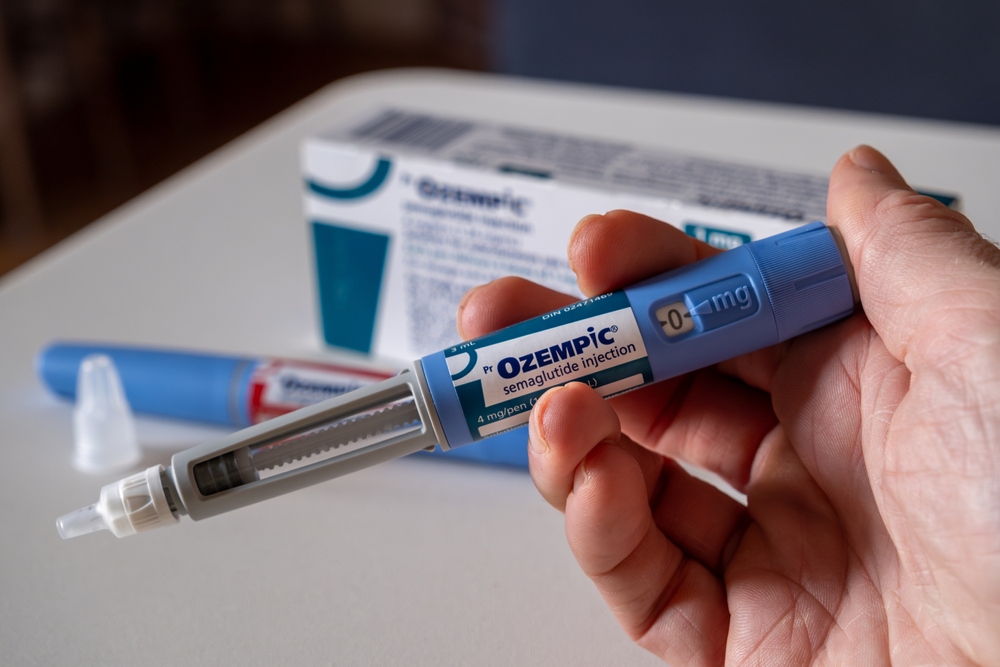
Are Weight Loss Injections Safe?
Weight loss injections are gaining attention for those struggling to lose weight through traditional means.
While such weight loss drugs offer an intriguing option, they remain controversial due to potential risks and side effects. According to the CDC, more than 74% of U.S. adults are overweight or obese, highlighting a growing demand for alternative weight loss solutions. With rising interest, weight loss injections have become popular, providing a medically supervised way to address persistent weight issues.
The key question is: Are weight loss injections safe, and do they offer long-term benefits, or do they have more drawbacks than advantages? This blog will explore the answers to these questions. It will also discuss the benefits and potential disadvantages of weight loss injections to help you determine if this aligns with your overall health goals.

What Are Weight Loss Injections?
Weight loss injections are a medical approach to supporting people’s weight loss journey. They work by using medicines that affect hormones linked to appetite and metabolism.
This helps users feel full sooner and stay full longer. The popular FDA-approved weight loss medications include semaglutide injections, which are marketed as Ozempic and Wegovy, and liraglutide, which is sold under the name Saxenda.
Semaglutide, a glucagon-like peptide-1 (GLP-1) receptor agonist, mimics the natural hormone GLP-1 released after meals. This hormone suppresses appetite and slows digestion, reducing calorie intake. Liraglutide operates similarly, promoting satiety and slowing digestion to help manage weight.
Though Ozempic was initially developed to manage type 2 diabetes, its weight loss benefits led to the release of Wegovy, a higher-dose version specifically aimed at weight management. According to a study published in the New England Journal of Medicine, patients taking semaglutide experienced an average weight loss of nearly 14.9% over 68 weeks.
These medications can be effective as a part of a comprehensive weight management program. However, commit to lifestyle changes, such as adopting a healthy diet and exercise, to achieve the best results. Remember that weight loss injections should be considered a support tool rather than a standalone solution.
How Weight Loss Injections Work
Weight loss injections influence metabolism and appetite, helping people suppress hunger and reduce calorie intake. Additionally, these weight loss drugs also impact insulin production and blood sugar regulation, which can be particularly helpful for those with type 2 diabetes.
Drugs like semaglutides (Ozempic and Wegovy) and liraglutides (Saxenda) mimic the natural hormone GLP-1’s effect by binding to GLP-1 receptors in the pancreas, brain, and other body parts. This binding stimulates signaling pathways, increasing insulin release and suppressing glucagon production. Insulin helps reduce blood sugar levels, whereas glucagon increases them. By promoting insulin secretion and suppressing glucagon, these injections help lower blood sugar.
Weight loss injections also act directly on the brain, reducing appetite and enhancing feelings of fullness after meals. Additionally, they slow down the digestive process, which further helps to regulate appetite by prolonging the feeling of satiety. This dual action works in tandem to help people consume fewer calories, supporting gradual, sustainable weight loss as part of a comprehensive treatment plan.
Potential Health Benefits of Weight Loss Injections
Weight loss injections aid in shedding extra pounds and offer several health benefits that extend beyond weight loss.
Regulate Blood Sugar
One of the most notable benefits is their impact on blood sugar regulation. Medications like semaglutide help to reduce blood sugar levels by enhancing insulin production and lowering glucagon levels. This mechanism can be particularly beneficial for individuals with type 2 diabetes, as it can reduce the reliance on diabetes medications and improve overall blood sugar management.
Managing Weight-Related Health Conditions
In addition to blood sugar control, weight loss injections can significantly impact weight-related health conditions. Obesity is a major risk factor for high blood pressure, high cholesterol, and cardiovascular disease. By helping individuals reduce their body mass index (BMI), these injections can lower the strain on the heart and improve overall cardiovascular health.
Health Improvements
The health benefits of weight loss injections can lead to better health outcomes. By improving blood sugar regulation, reducing body weight, and addressing common health conditions associated with obesity, these injections contribute to a healthier, more balanced lifestyle.
As individuals lose weight, they often experience higher energy levels, better mobility, and a lower risk of developing serious health issues. With the added support of weight loss injections, many find it easier to manage chronic conditions, improving their quality of life.
How Long Does It Take to See Results?
When using weight loss injections, individuals often wonder how long it takes to see noticeable results. While the timeline can vary, most people see weight loss within the first few weeks. On average, one can lose around 2% of their body weight within the first 4 weeks of treatment. For some, the weight loss process may be slower, while others may experience more rapid changes.
Remember that several factors impact how much weight individuals lose and the time it takes to see results. Starting weight plays a key role. Those with more weight often see more significant changes in the initial stages. The medication dosage can also influence the rate of weight loss, as higher doses may lead to faster results.
Additionally, lifestyle habits like diet and exercise are critical to weight loss. Weight loss may be slower or less sustainable without proper diet adjustments and regular physical activity.
Risks and Side Effects
While weight loss injections offer significant benefits, it is important to know the potential risks and side effects. Like any medication, these injections come with both common and severe side effects that can impact a person’s overall health.
The most commonly reported side effects of weight loss injections include abdominal pain, nausea, and digestive issues. These effects are mostly mild and subside as the body adjusts to the medication. However, some may experience constant discomfort, affecting their ability to continue treatment. In most cases, these side effects are manageable, but they can be bothersome for some people.
One of the more concerning potential side effects is an increased risk of thyroid cancer. Studies indicate that these injections can increase this risk, especially in individuals with a history of thyroid problems, although such cases have been reported rarely. Kidney injury is another potential risk.
Additionally, weight loss injections have been linked to a higher risk of cardiovascular disease in certain individuals. This risk is higher in people who already have pre-existing heart conditions or are at high risk for heart disease.
There are also reports of more extreme reactions, including the possibility of even death in rare cases, particularly when used alongside other medications or in people with certain medical conditions.
Who Should Consider Weight Loss Injections?
Weight loss injections may not be appropriate for everyone, and assessing their suitability involves a thoughtful evaluation of a person’s health condition and weight loss difficulties.
These injections are recommended for individuals who are significantly overweight or obese. They are especially advised when standard weight loss methods, such as diet and exercise, have proven ineffective. For those with a body mass index (BMI) of 30 or higher or those with a BMI of 27 or higher with related health conditions, weight loss injections may be considered part of a weight management plan.
People with weight-related health conditions, such as type 2 diabetes, are often the ideal candidates for weight loss injections due to the potential health benefits they provide. Excess weight can exacerbate these conditions, and weight loss can help manage or reduce the severity of these issues.
However, consult with a health expert before starting treatment. Healthcare providers will assess your overall health picture, including any underlying conditions or risks, to determine whether weight loss injections are safe and appropriate.

Alternative Chronic Weight Management Options
While weight loss injections are becoming increasingly popular, they are just one tool in various options available for managing chronic weight.
For many individuals, adopting a combination of healthier lifestyle habits, dietary changes, physical activity, and medical treatments can be more effective in achieving long-term results.
Lifestyle Changes
The foundation of weight management lies in lifestyle changes. Adopting healthier eating habits is the first step in improving weight control.
This includes consuming a more balanced diet, reducing processed food intake, and focusing on nutrient-dense foods such as fruits, vegetables, whole grains, and lean proteins. These small changes can significantly impact overall health and weight management. Increasing physical activity is another essential aspect of managing weight.
Regular exercise, especially cardiovascular and strength training, helps burn calories and improves metabolism. Alongside exercise, reducing your sedentary behavior is important. Replace using elevators with stairs and walk during your free time to increase overall activity levels. Additionally, you can manage your stress levels through relaxation techniques like yoga or meditation to prevent emotional eating.
Diet and Exercise
A balanced, calorie-controlled diet paired with regular physical activity remains one of the most effective strategies for long-term weight management. Monitor your portion sizes to prevent overeating and keep calorie intake in check.
Develop a meal plan that includes nutrient-dense foods to ensure proper nutrition while avoiding excess calories. Regular exercise, particularly cardiovascular exercises, can help burn fat, while strength training builds lean muscle mass, which in turn boosts metabolism.
Bariatric Surgery
For those with severe obesity, bariatric surgery is an option when nothing else works. Procedures like gastric bypass, sleeve gastrectomy, and adjustable gastric banding reduce the stomach’s capacity, leading to reduced food intake and, ultimately, weight loss.
The duodenal switch is another surgical option that combines a restrictive and malabsorptive approach. While bariatric surgery offers significant weight loss potential, it comes with risks, and individuals must meet specific medical criteria to be considered candidates. Patients need to work with their health experts to evaluate whether surgery is a suitable option.
Behavioral Therapy
For some individuals, weight management means addressing underlying psychological factors contributing to weight gain.
Cognitive-behavioral therapy (CBT) is a type of therapy that assists individuals in recognizing and altering harmful thought patterns associated with eating. Support groups or individual counseling can also be beneficial, particularly for those struggling with emotional eating or other psychological issues tied to food.
Medical Devices
Certain medical devices offer additional support for chronic weight management. The intragastric balloon is a device temporarily placed in the stomach to reduce its capacity, promoting early satiety.
Another device, vagal nerve stimulation, uses electrical impulses to help control appetite by stimulating the vagus nerve. These devices are typically used to make lifestyle changes for individuals who need additional help managing their weight.
Intermittent Fasting
Intermittent fasting has become a popular dietary approach for weight management. This approach involves limiting food intake to certain hours during the day, helping individuals reduce overall calorie consumption. For many, it’s a manageable way to control their caloric intake and support weight loss without the need for drastic dietary changes.
Final Verdict
All FDA-approved weight loss injections are considered safe treatments with minimal side effects. However, weight loss injections are not a one-size-fits-all solution.
While these medications can be effective for certain individuals, they should be considered part of a broader weight management strategy, including lifestyle changes, healthy eating, and regular physical activity.
These injections should be administered by a certified healthcare professional who can guide you in choosing the most appropriate treatment plan and be available to address any side effects you may experience.